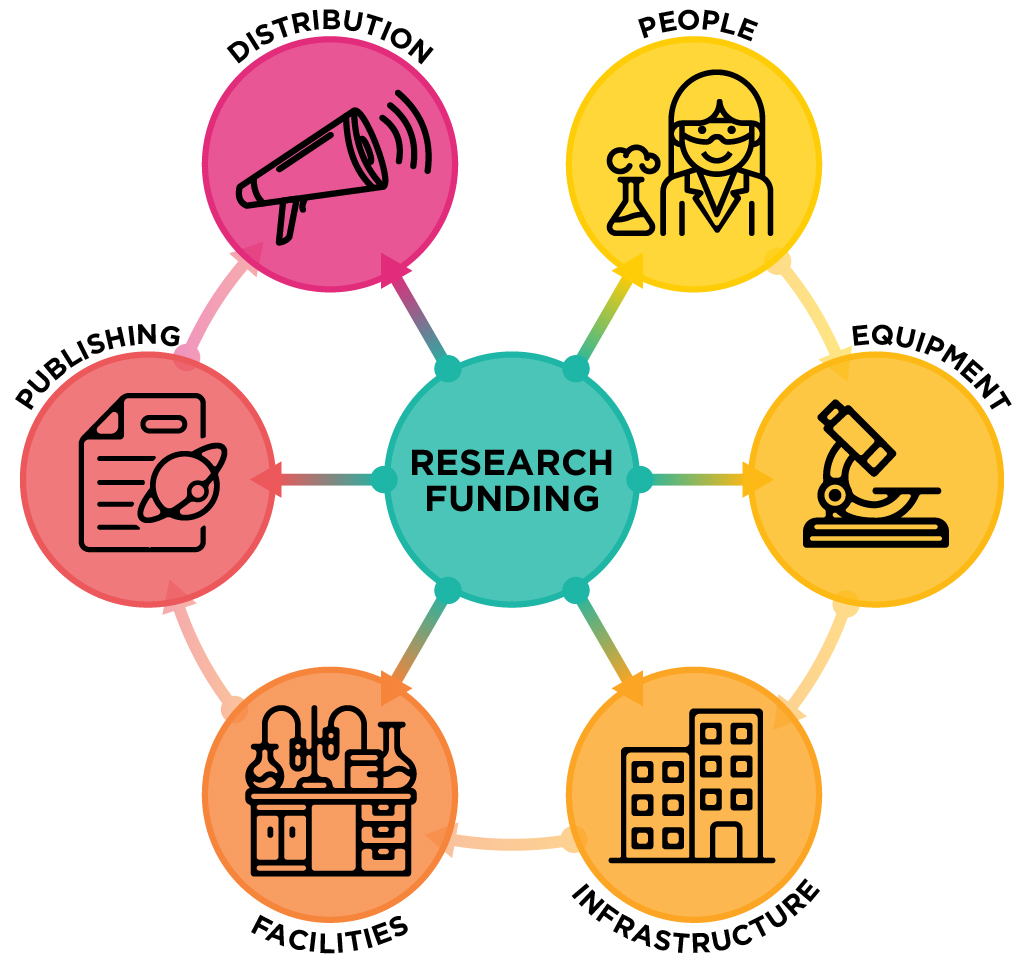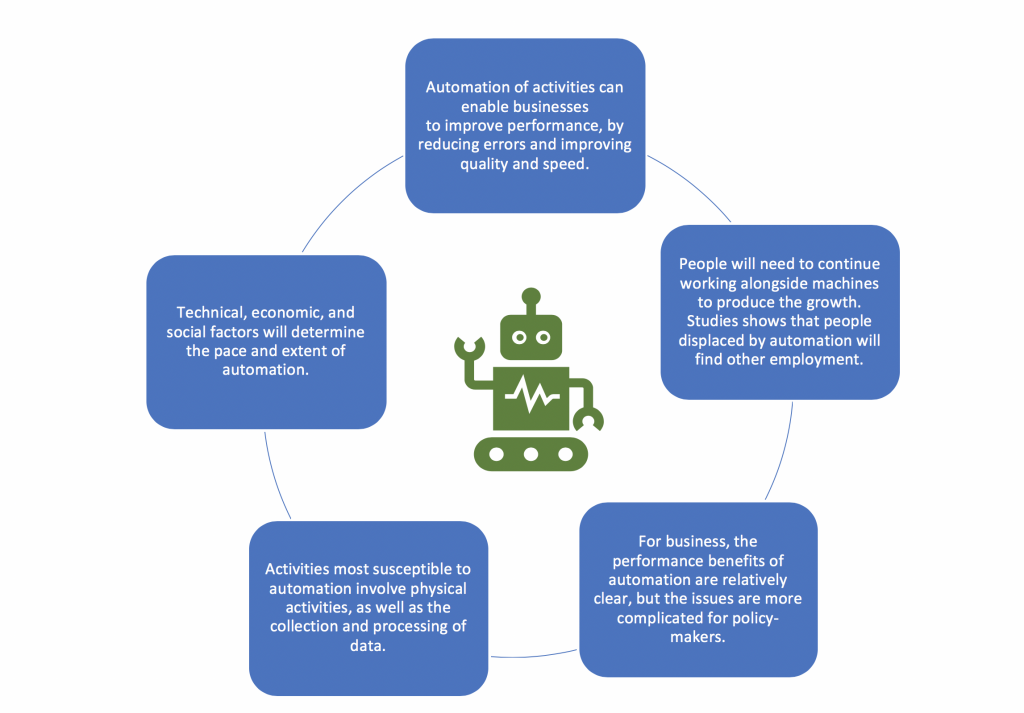Research funding plays a pivotal role in shaping the landscape of innovation and entrepreneurship across the United States. As crucial financial support for initiatives in science, technology, and medicine, the impact of research funding cannot be overstated. Recent events, including significant funding freezes, threaten this vital resource, potentially undermining the development of groundbreaking products and startups. The interplay of federal research money and academic institutions, such as Harvard, is critical; analysis shows that every dollar invested in federal biomedical research generates over $2 in economic activity. As we navigate these challenges, understanding the ramifications of disrupted funding streams is essential for both the national economy and the thriving startup ecosystem that relies on scientific advancements.
Financial backing for academic research serves as a cornerstone for fostering innovation and the entrepreneurial spirit. In today’s competitive landscape, the availability of grants and funding opportunities, like those provided by institutions such as Harvard, significantly influences the growth trajectory of nascent businesses. The nexus between research institutions and entrepreneurship is often fueled by the influx of federal resources, which not only enhances the capabilities of laboratories but also attracts top talent. Additionally, the consequences of limited research endowments extend beyond immediate impacts, threatening the sustainability of the startup environment that thrives on scientific breakthroughs. Observing these dynamics underscores the importance of consistent support for research initiatives, which ultimately empowers a vibrant ecosystem for future ventures.
The Critical Role of Research Funding in Innovation
Research funding plays a pivotal role in fueling innovation across various sectors, particularly in technology and biomedical fields. When universities receive federal research money, they are endowed with the resources necessary to push the boundaries of scientific discovery. Such funding enables researchers to delve into complex problems, encourage collaborative work, and ultimately transform groundbreaking ideas into marketable products. The recent cuts in research funding, as highlighted by prominent institutions such as Harvard, raise concerns about stifling innovation that drives U.S. competitiveness in the global economy.
Furthermore, the impact of reduced research funding extends beyond immediate financial constraints, potentially jeopardizing the entire ecosystem of entrepreneurship and innovation. Disruptions to the funding landscape can delay critical research projects and halt promising startup initiatives that rely on academic breakthroughs. This ripple effect not only affects the universities and researchers directly involved but also the broader economic landscape, as fewer innovative products and solutions are introduced to the market, ultimately hindering economic growth.
How Federal Research Money Fuels Startups
Federal research money is indispensable for nurturing the startup ecosystem, particularly in areas where significant scientific advancements occur. By providing grants and funding opportunities, the government catalyzes research projects that often lead to the establishment of new companies. For example, initiatives from entities like the National Institutes of Health (NIH) are crucial for bridging the gap between academic research and commercial viability. Startups emerging from universities like Harvard capitalize on funded research to develop innovative solutions, targeting real-world problems with advanced technologies.
Moreover, these startups frequently emerge from interdisciplinary collaborations fostered by well-funded research environments. The integration of technology, engineering, and biological sciences in research labs creates a fertile ground for entrepreneurial ventures to flourish. As research universities equip students with the necessary skills and resources, the resultant startups not only contribute to local economies but also position the U.S. as a global leader in innovation. Thus, sustaining federal research funding is essential for both immediate and long-term economic benefits.
The Economic Impact of Funding Cuts on Research Institutions
The recent funding cuts at major research universities, like Harvard, threaten to erode decades of progress in scientific discovery and economic development. Economists warn that even a modest reduction in funding could lead to a decline in gross domestic product (GDP), reminiscent of the Great Recession of 2008-2009. This projected shrinkage underscores the significant economic ripple effects that can stem from reduced investments in research. Every dollar allocated to federal biomedical research generates approximately $2.56 in economic activity, demonstrating the high return on investment that such funding yields for the economy.
Additionally, research institutions are prime breeding grounds for innovation. Cuts in funding result in hiring freezes and project cancellations, stifling the potential for new startups to emerge. The delayed formation of these companies can lead to a shortage of innovative solutions in critical fields such as healthcare and technology, further exacerbating economic challenges. A thriving research environment not only attracts top talent but also ensures that these individuals can contribute meaningfully to the economy through entrepreneurial endeavors.
The Incubation Role of Research Universities
Research universities serve as vital incubators within the entrepreneurial ecosystem. Through specialized programs, incubators, and access to venture capital networks, these institutions equip aspiring entrepreneurs with the knowledge and resources necessary to launch successful startups. Harvard, for instance, has established a robust entrepreneurship curriculum designed to empower students to become innovators. The interplay between academic research and business creation is intentional, fostering a culture of ingenuity and collaboration that benefits the broader economy.
Moreover, these universities provide essential support through technology transfer offices that help faculty commercialize their research. Such structured pathways not only elevate the institution’s profile but also reinforce the importance of research funding in enabling ground-breaking efforts that drive industry advancements. As startup cultures thrive in these academic settings, they create additional opportunities for economic growth and innovation, illustrating the critical interdependence between research funding and entrepreneurial success.
Future of Entrepreneurship Amidst Funding Uncertainty
The future of entrepreneurship in the U.S. faces considerable uncertainty due to ongoing fluctuations in research funding. As federal support dwindles, the potential for groundbreaking startups to emerge under the current landscape appears bleak. The full effects of these funding freezes may take years to manifest, resulting in fewer opportunities for entrepreneurs who rely heavily on research advancements as a foundation for their ventures. A diminished knowledge transfer between academia and industry could stifle the very innovations that have historically driven U.S. economic growth.
Despite these challenges, there is a glimmer of hope for recovery. Should funding stabilize, universities may once again become vibrant centers of innovation, capable of attracting top talent and fueling entrepreneurial ambitions. However, it is crucial for stakeholders, including policymakers and private investors, to recognize the intrinsic value of supporting research initiatives as a means of fostering a sustainable startup culture. Investment in research funding today is an investment in the entrepreneurial landscape of tomorrow.
Measuring the Impact of Research Grants on Startup Ecosystems
The significance of research grants in cultivating a thriving startup ecosystem cannot be overstated. Numerous studies have established a direct correlation between funding in academic research and the successful launch of new ventures. Support from sources like Harvard’s research grants not only facilitates access to cutting-edge technologies but also promotes a culture of entrepreneurship among students and faculty alike. This symbiotic relationship underscores the importance of nurturing research initiatives as they lead to commercially viable ideas and innovative companies.
Furthermore, the influx of federal research money contributes to the competitiveness of universities in attracting international talent. The availability of funded research projects enhances an institution’s reputation, making it a desirable location for aspiring entrepreneurs. Startups that emerge from such environments typically have a higher rate of success, leveraging the advanced research and development capabilities available within universities. Thus, recognizing the critical role of research funding is essential for cultivating a vibrant and sustainable startup ecosystem.
Funding Challenges and Their Effects on Economic Growth
Funding challenges pose significant risks not only to the research community but also to the wider economy. When essential research projects are stalled due to financial constraints, the ripple effects can lead to a stagnation of technological advancement and innovation. Economists note that without sustained investment, we risk a decline in the competitiveness of U.S. companies in the global marketplace. The inability to pursue research initiatives can fundamentally halt progress in various sectors, affecting job creation and economic stability.
In addition, funding disruptions can lead to a diminishing return on investment in research and development. Companies relying on advancements born out of academia face hurdles when critical funding for scientific discovery is cut. The long-term implications of such trends include a slowdown in economic growth, and a potentially diminished ability for the U.S. to respond to global challenges. Therefore, ensuring continuous research funding is critical in safeguarding the future economic landscape.
The Path Forward: Ensuring Sustainable Research Funding
To navigate the challenges posed by current funding uncertainties, stakeholders must advocate for sustaining and bolstering research funding streams. Policymakers, academic leaders, and industry partners should collaborate to devise strategies that ensure financial backing for research initiatives. This pursuit of sustainable research funding is not merely an academic concern but a foundational element to the ongoing growth of the U.S. economy, particularly within the startup ecosystem. The interconnectedness of academia and entrepreneurship necessitates a concerted effort to maintain a flow of resources that fuels innovation.
Moreover, creating more robust communication channels between federal entities and research institutions can help identify and mitigate funding-related risks. Institutions should also explore alternative funding sources, such as partnerships with private industries or philanthropic foundations, to diversify their funding portfolios. By establishing a resilient funding framework that prioritizes research, we can position ourselves to unlock new avenues of economic growth while fostering a rich environment for entrepreneurial endeavors.
Frequently Asked Questions
What is the impact of research funding on the startup ecosystem?
Research funding plays a crucial role in the startup ecosystem by providing resources for innovation and development. Increased funding leads to more productive laboratories, which generate innovative ideas that can be transformed into successful startups. When funding is steady, it not only fosters research but also attracts top talent, ensuring a vibrant entrepreneurial environment.
How do Harvard research grants influence entrepreneurship and innovation?
Harvard research grants significantly influence entrepreneurship and innovation by supporting research initiatives that can lead to groundbreaking startups. These grants provide the necessary funding for faculty and student projects, enhancing the commercial viability of scientific discoveries and fostering a culture of innovation within the university.
Why is federal research money essential for tech and biomedical startups?
Federal research money is essential for tech and biomedical startups because it drives the initial research that leads to commercialization. The funding enables more extensive experimentation and innovation in labs, creating a pipeline of ideas that can eventually evolve into successful businesses, thus contributing to U.S. economic growth.
What are the consequences of cuts to research funding on innovation?
Cuts to research funding can have dire consequences for innovation, leading to hiring freezes, the cancellation of critical initiatives, and the termination of grants. This disruption can stifle the growth of startups and negatively impact the overall economy by limiting the development of new technologies and medical advancements.
How does a lack of research funding affect the future of entrepreneurship?
A lack of research funding can hinder the future of entrepreneurship by reducing the number of viable projects that can lead to successful startups. Without sufficient resources, the pathway from innovative idea to market-ready product becomes more challenging, potentially resulting in fewer entrepreneurs stepping into the market.
What role do research universities play in fostering startup growth through research funding?
Research universities serve as incubators for startup growth through research funding by providing access to advanced facilities and expert guidance. They facilitate collaboration between academics, students, and industry professionals, creating a conducive environment for startup development and innovation.
How can research funding cuts lead to economic challenges?
Research funding cuts can lead to economic challenges by curtailing innovation and slowing the growth of new businesses. As the startup ecosystem suffers from reduced federal funding, the overall economic activity may decline, comparable to setbacks experienced during significant economic downturns.
What is the relationship between research funding and the commercialization of lab ideas?
Research funding is directly linked to the commercialization of lab ideas, as it provides the essential resources needed for experimentation and development. When adequately funded, innovative lab work can transition into marketable products, leading to the establishment of new companies and ultimately stimulating economic growth.
| Key Point | Details |
|---|---|
| Funding Cuts Impact | Harvard faces a freeze of over $2 billion in research grants due to political tensions, affecting innovation and potential economic growth. |
| Projected Economic Shrinkage | Research suggests GDP could shrink by 3.8% due to funding cuts, reminiscent of the 2008 recession. |
| Role of Research Universities | Universities contribute to startups via faculty and students, acting as incubators for ideas and businesses. |
| Economic Activity Ratio | Each dollar invested in federal biomedical research yields approximately $2.56 in economic activity, highlighting funding’s significance. |
| Long-term Effects | The absence of research funding will lead to fewer startups, with effects taking 1-3 years to fully materialize. |
Summary
Research funding is vital for fostering innovation and economic growth in the U.S. Recent cuts to research funding, particularly impacting institutions like Harvard, threaten this critical source of advancement. The ripple effects of reduced funding could diminish the startup ecosystem that relies heavily on research universities for incubation and development over the coming years. Without adequate investment in research, the potential for future breakthroughs and sustained economic progress may very well be compromised.




